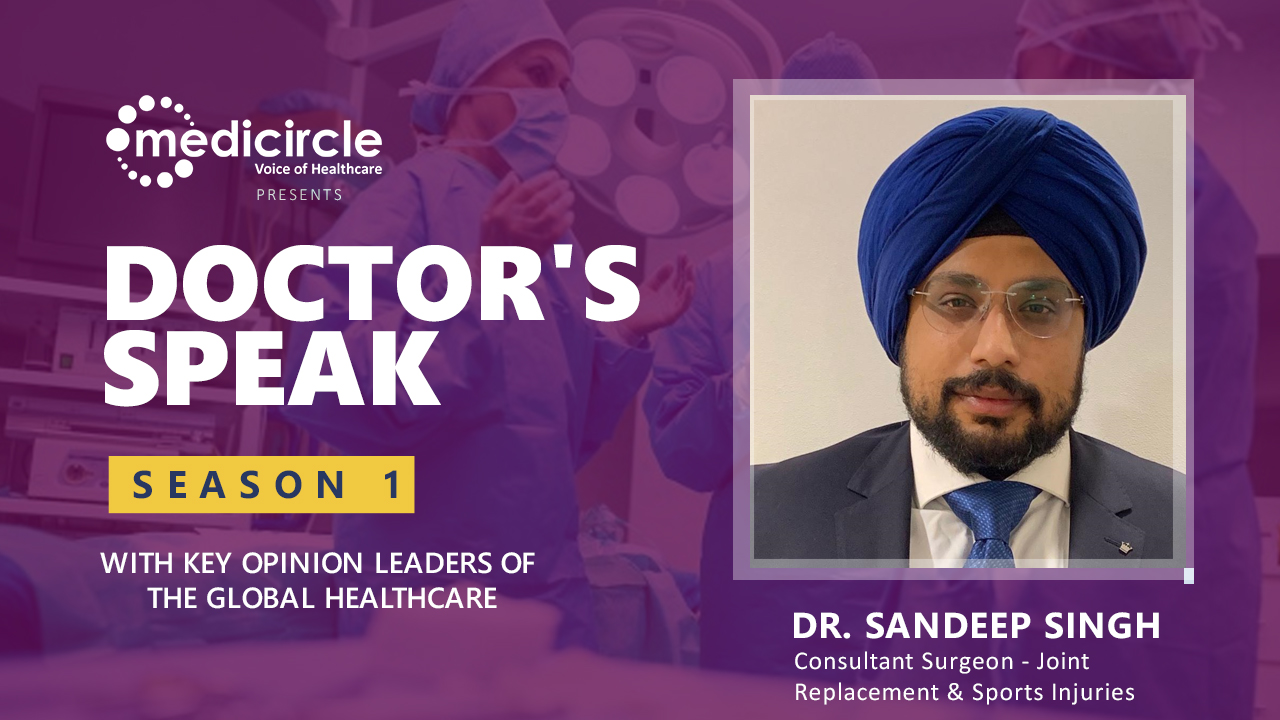Orthopedic surgery or orthopedics is the branch of surgery concerned with conditions involving the musculoskeletal system. Orthopedic surgeons use both surgical and nonsurgical means to treat musculoskeletal trauma, spine diseases, sports injuries, degenerative diseases, infections, tumors, and congenital disorders.
Dr. Sandeep Singh, Consultant Surgeon, Joint Replacement and Sports Injuries, Care Hospitals has been an Assistant Professor at Employee State Insurance Corporation. He had a fellowship at United Lincolnshire Hospitals in Boston, UK, and was also a Senior Fellow at the University College London Hospitals in the UK for Robotic Arthroplasty, and Sports Injury. He's currently working at Care Hospitals, Bhubhaneshwar, as a Consultant Surgeon for Joint Replacement and Sports Injuries.
Care Hospitals, Bhubhaneshwar: The Care Hospitals group is a multi-specialty healthcare provider, with 14 hospitals serving 6 cities across 5 states in India.
Working with Care Hospitals
Dr. Sandeep Singh opens up to his experience working with a big brand hospital, "Anything in orthopedics, requires a big setup and a good backup. Especially when we're trying to do new things, and to try the way this country works. When it comes to orthopedics you always require a financial, moral, and, good team. Working with a brand like Care is actually very helpful because they have that vision of going, which actually helps doctors also. So it's really great associated with the Care," he says.
Robotic Knee Replacement Surgery in India
Dr. Sandeep Singh explains, "Robotic surgery has made its dawn in India in the last couple of years. But if we go to the west, if you go to the US, Robotic Surgery is considered normal. Even in Europe, Robotic Surgery has picked up. So, I was elected for the last two years, where I exclusively did robotic knees and hips, that was one of my primary reasons of coming back to India to hopefully start it in this part of the world. When it comes to your initial question, yes, robotic surgery is much better, it is much more precise, it causes lesser blood loss. And for the patient, it's much better because it's more precise. The amount of error that a robot makes is much less than a surgeon. So, though basically it is the future. I think in the next 15-20 years when I grey up, everything will be robotic when it comes to hips and knees," he says.
Orthopedic Joint Replacement Surgery
Dr. Sandeep Singh busts some myths, "I've been a consultant here for a few months in India. And, I think there are a lot of traditional views about joint replacement when it comes to Indian patients. It's not that their knees are different than those that the West, but the way they perceive joint replacement is quite different. Joint replacement in the West is highly acceptable and people actually want it, but in India, people wait for the deformity to increase to a level where their life is completely dependent on that surgery. So, it is my job being a surgeon, to actually create awareness among people that it is safe and a one-time surgery that gives good results. The biggest myth is changing how people think about joint replacement, especially knee and hip replacements because these are life-changing surgeries. Hip replacement has been declared as the operation of the century by The Lancet, which is one of the biggest medical journals in the world. So, it is a very successful and a life-changing surgery. We just have to change the attitudes of the people who are suffering and don't know about it," he says.
Future of Sports Injury Management in India
Dr. Sandeep explains, "50% of my practice is a joint replacement and the next 50% of sports injuries. Now, the reason I chose East of India as my area of practice is that East of India, especially Bhubhaneshwar has hosted the hockey World Cup, it's going to host the FIFA World Cup really soon. There is a big push for sports in this part of the world. When I was in London, I was at 18 months at the Institute of sports exercise and health, where we used to regularly deal with patients who were olympiads and all of the Olympic players and athletes. So, obviously, I learned a lot about that. I think similar kind of structures needs to be built in this part of the world. In January, in fact, in Care hospital, we are starting first of its kind in East India, super-specialty clinic, which will include a lot of physiotherapists, sports physiotherapist, psychiatrist, sports dietitian which is first of its kind in this part of the country. I think the future is great. We need India to win more medals, but to win more medals, we need centers. Obviously, there needs to be a lot of political push, but we need people who are trained to handle sports injuries. I think it's there's a lot of opportunity and potential," he says.
(Edited by Sana Khan)

 " In India, people wait for the deformity to increase to a level where their life is completely dependent on that surgery", says Dr. Sandeep Singh, Consultant Surgeon, Joint Replacement and Sports Injuries, Care Hospitals.
" In India, people wait for the deformity to increase to a level where their life is completely dependent on that surgery", says Dr. Sandeep Singh, Consultant Surgeon, Joint Replacement and Sports Injuries, Care Hospitals.









.jpeg)

















.jpg)


